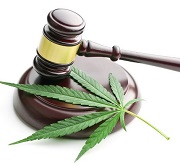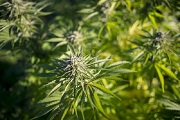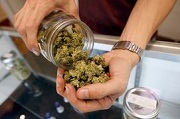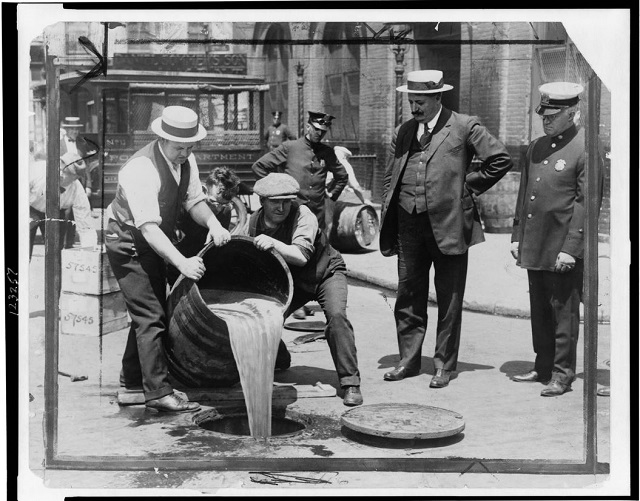The Narcotic Drugs Amendment Bill 2016, The Amendments
The bill explanation reads:
The Commonwealth currently has laws to regulate the import, export and manufacture of cannabinoids and cannabis raw material, but these do not allow the cultivation in Australia of cannabis plants for medicinal purposes. The manufacturing provisions in the Narcotic Drugs Act 1967 are considered inadequate to properly manage the risks associated with the potential for diversion of medicinal cannabis products and other narcotic drugs.
The Commonwealth is unable to grant licences for the production of locally cultivated cannabis for medical use and remain compliant with the obligations contained in the Single Convention. As a signatory to the Single Convention, Australia agrees that the licit use of narcotic drugs must be tightly regulated to ensure that public health is protected from the risks of diversion into illicit markets.
Cannabis sativa (cannabis) is a narcotic drug that is tightly controlled in Australia. The cultivation, production, manufacture, import, export, distribution, trade, possession, use and supply of cannabis and cannabis derived products are regulated by a number of Commonwealth laws, including the Narcotic Drugs Act 1967, which addresses the manufacture of narcotic substances (including cannabis).
The amendments to the Narcotic Drugs Act 1967 will ensure that any therapeutic product, including medicinal cannabis, also meets Australia’s strict international obligations safe-guarding its production, manufacture and distribution for medical and scientific purposes only.
The amendments will establish a licensing scheme for the cultivation of cannabis for medicinal and related scientific purposes. The key features of the cannabis cultivation licence scheme include:
• Two cannabis licences, one that authorises the cultivation of cannabis for manufacture into medicinal cannabis products; the second that authorises research into the cannabis plant that is to be used for medicinal purposes. This could include research into growing conditions, cannabinoid yields from different strains, ensuring consistency in yields and other matters related to ensuring a safe, predictable raw material.
• A strict ‘fit and proper person’ test that will be applied to the applicant and relevant business associates and involve consideration of a range of matters including criminal history, connections, associates and family, financial status, business history and capacity to comply with licensing requirements. Licence holders will also be expected to remain ‘fit and proper’. This test is explicitly designed to ensure the exclusion of criminal elements, including organised crime, which may be tempted to use the licence scheme as cover for illegal activities.
• A need to demonstrate a supply arrangement exists with a licensed manufacturer, in order to get a licence.
• A permit system for controlling how much cannabis can be produced. This will assist in meeting a key obligation of the Single Convention to prevent over-production. Other than in the case of research, a permit will not be granted for production unless a contract exists between the licence holder and a licensed manufacturer.
• Conditions applying to the licence that ensures security of the crop so that it is not diverted to illicit uses.
• Substantial penalties for offences for breaches of conditions and for undertaking unauthorised activities.
• A comprehensive suite of regulatory controls including: powers to give directions to licence holders; of inspection, monitoring and investigation; to issue infringement notices and seek civil penalties; to accept enforceable undertakings and to seek injunctions – all to assist in ensuring the integrity of the system.
The existing manufacturing provisions are also to be updated to mirror the cannabis licence provisions. Where a cannabis licence holder must demonstrate a business relationship with a licensed manufacturer, the licensed manufacturer must be able to demonstrate a legitimate supply chain to patients consistent with provisions of the Therapeutic Goods Act 1989. In effect, this will limit production and supply to legitimate demand.
Demand will be determined by suitable medical practitioners, in accordance with provisions in the Therapeutic Goods Act, such as clinical trials, authorised prescribers and the Special Access Scheme. Importantly, the Secretary of the Department of Health will have the power to order the destruction of cannabis produced by a licence holder. This allows the Secretary to control the level of production and prevent accumulation (or rectify accumulation, if it has occurred).
The Bill confers decision-making powers on the Secretary (previously the Minister) so that an internal review provision, undertaken by the Minister, can be facilitated. This gives applicants and licence holders subject to adverse decisions a more timely and less expensive option than seeking review by the Administrative Appeals Tribunal directly.
The Government anticipates that there will be costs involved in the regulation of the cultivation licensing scheme, such as “administration of licence and licence variation applications, site inspections(to support application decisions), post-licence inspections, sampling and testing and the acquisition of law enforcement data to allow determinations related to ‘fit and proper’ person test, as well as other compliance and law enforcement activities.
The Government has has proposed that these be funded from a cost-recovery scheme “consistent with the Commonwealth’s cost-recovery guidelines.
reference: http://www.gizmodo.com.au/2016/02/medicinal-marijuana-has-been-legalised-in-australia/
Hemp Embassy, politicians, welcome medical cannabis laws
The Nimbin Hemp Embassy will apply for a licence to cultivate medicinal cannabis following the passing of laws in Federal parliament this week.
Hemp Embassy president Michael Balderstone said the Embassy had contracts with a network of growers and healers on the north coast of New South Wales.
‘We are a non-profit organization and we know the cannabis culture really well,’ Mr Balderstone said.
‘This is an opportunity to create genuine legal, taxable employment in this region.’
His comments followed the passing of legislation that clears the way for Australia’s State and Territory governments and companies to apply for a license to locally cultivate or manufacture medicinal cannabis products.
‘This is a great opportunity for “Hemployment” … in the application we will point out that we have connections with growers and medicine makers,’ he said.
Richmond MP Justine Elliott and Page MP Kevin Hogan both welcomed the new laws.
Ms Elliott said Patients who were suffering from a terminal illness or other serious medical conditions should be able to access safe, reliable and legal medicinal cannabis.
‘In supporting this idea, we are driven by the science, by compassion and by the need to treat people with dignity. We firmly believe that the time has come for a national scheme,’ she said.
‘As it stands, the situation means that families who access medical cannabis products are now accessing it illegally and, in fact accessing it on the black market.
‘That means, of course, that they are at risk of being arrested and convicted, and no-one — no family — should have to choose between getting their loved one the medicine they need and breaking the law.
‘It is simply an unfair choice to have to make.’
Meanwhile, Lismore MP Kevin Hogan also welcomed the ‘historic’ legislation.
‘I have heard numerous stories from members of our community with debilitating illnesses who want access to medicinal cannabis to help relief their chronic pain and improve the quality of their lives,” he said.
‘This legislation clears the way for Australia’s State and Territory governments and companies to apply for a license to locally cultivate or manufacture medicinal cannabis products.
‘It was always vital we had a clear national licensing system to ensure the integrity of crops for medicinal or scientific purposes, with the new laws enabling the Commonwealth to track the development of medicinal cannabis products from the farm to the pharmacy.”
An independent Advisory Committee will now be established to oversee the next stage of the rollout of a national regulator now legislation has passed.
Mr Hogan said the legislation does not relate to the decriminalisation of cannabis for general cultivation or recreational use, which remains a law enforcement issue for individual states and territories.
Hemp Embassy president Michael Balderstone said it was time to change the focus of law enforcement with regards to cannabis.
‘We are still a long way from a medical cannabis user being able to have a few plants in their backyard, which is how it should be,’ he said.
‘We should also be looking to America and Europe for ways to allow the recreational use of cannabis.’
reference:http://www.echo.net.au/2016/02/hemp-embassy-politicians-welcome-medical-cannabis-laws/
Medical marijuana patients can grow own cannabis, judge rules
Our brother-country of similar size, Canada, also still holding onto commonwealth rule, (an intergovernmental organisation of 53 member states that were mostly territories of the former British Empire.), has just changed it's laws for medical cannabis users.
"Judge Michael Phelan struck down federal legislation introduced by the previous Conservative government that barred patients from growing their own plants and required them to buy from licensed producers."
Source: Canada News TS
Australia, will do the same, eventually. Maybe when our not so liberal governing body is rejected, or hopefully they will see reason.
We have change, but not the truth
Ok, so now finally due to overwhelming public pressure, mainly due to parents of children with epilepsy, we have some movement. The senate has passed legislation allowing a national body that can issue licenses to growers and regulate local crops of medicinal marijuana.
How many licenses are on offer, the cost and the prerequisites for obtaining a license, is still an unknown (at least to me).
But we still have a long, long way to go, and I'm not sure if I'll be around to see the result I consider just.
Cannabis, which is not a drug but a herb, still remains a "prohibited substance" under the poisons schedule. But Health Minister Sussan Ley said the Department of Health and the Therapeutic Goods Administration were "well-advanced" in considering downgrading it to a "controlled substance" class, putting it in the same category as morphine.
Now how could the TGA and DOH clump cannabis together with morphine? Morphine can kill you, it can cause asphyxia and death by respiratory depression.
Cannabis is non toxic, it's not a poison! Many recreational users of cannabis have rigorously tried to abuse the herb over the years with no associated deaths.
So this is the next step, the next bit of legislation that needs to be amended.
In saying the above, it also needs to be decriminalised now, not next year or in 5 years from now. Cannabis has been decriminalised in the ACT and South Australia for decades, cannabis users are not evil people, they are not thieves, murderers, rapists or any other type of nefarious person. Cannabis does not cause people to be violent as alcohol can.
If anything it's alcohol that should be listed as a "prohibited substance" under the poisons schedule" and associated with morphine. Alcohol is toxic and you can, and people do, die from alcoholic poisoning. Now I'm not saying that I want alcohol illegal, just pointing out scientific facts. We don't want another prohibition similar to that from 1920 to 1933 in the United States, that was a bloodfest of violence.
So as much as I welcome the changes to legislation and feel it's a step in the right direction, it's nowhere near good enough and cannabis is still being demonised without just reason, as it has been for the past 50 years.
Hopefully, what this legislation will allow, is the truth to be shown. That cannabis, the herb, is not an evil drug as portrayed by the U.S. and Australian government. Hopefully, it will show cannabis to be the amazing medicinal herb it is, with so much potential for all.
references: http://www.smh.com.au/federal-politics/political-news/senate-passes-medicinal-cannabis-legislation-20160224-gn2gjk.html
Latest
Coronavirus Strikes Massachusetts Cannabis Company Employees
Reassessing the Essential: Cannabis in the Time of a Pandemic
5 Reasons To Try Aspen Valley CBG Flower (30% Off)
High Times Cannabis Cups Go Virtual In Wake Of Coronavirus Pandemic
Drug Enforcement Administration Proposes Plan To Expand Cannabis Research
Ghana Legalizes Cannabis For Medicinal And Industrial Uses
The cheapest legal weed in Canada: Discover these cannabis ‘value brands’
Cannabis and coronavirus: Here’s what you need to know
cannabis designs
The Best Of
WHO Rules CBD Should Not Be a Scheduled Drug

Dr Cristina Sanchez PhD video interview on medical marijuana and cancer

Biochemist Dennis Hill interview; Cannabis oil as a cure for cancer.
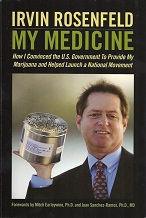
The unofficial World Record holder for cannabis smoking part 1



